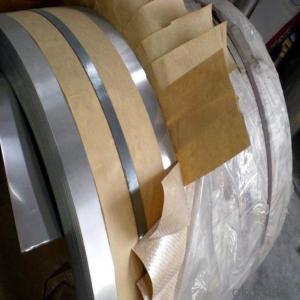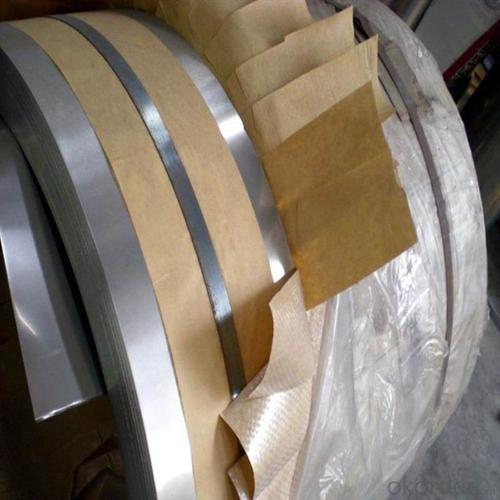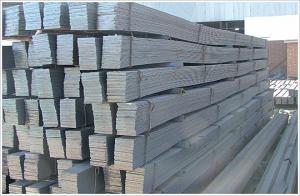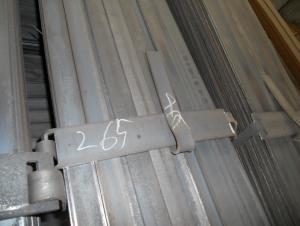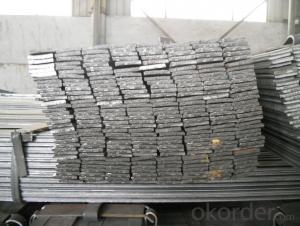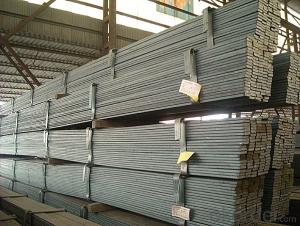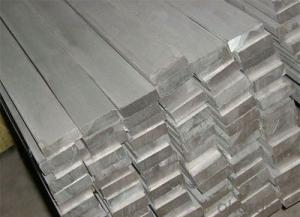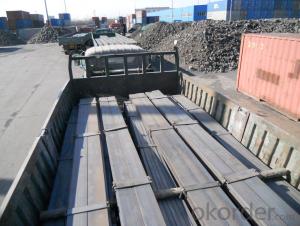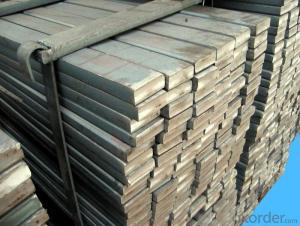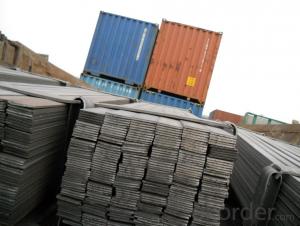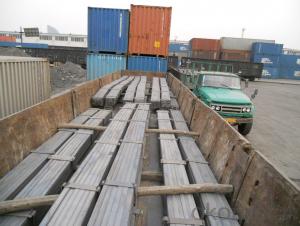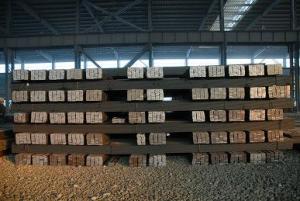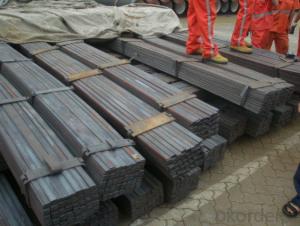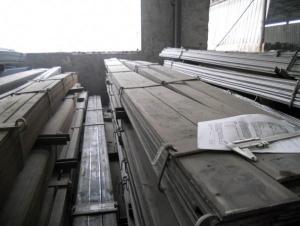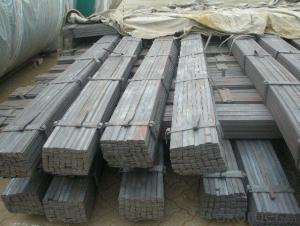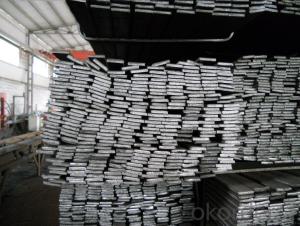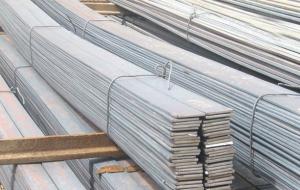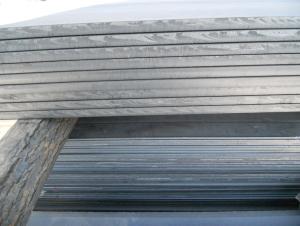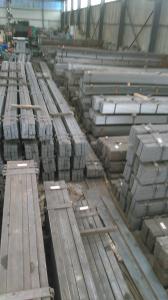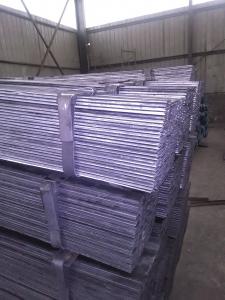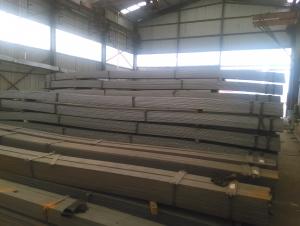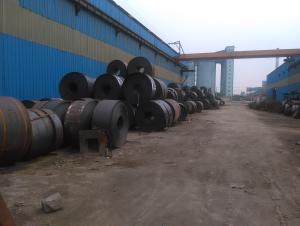High carbon spring steel hot rolled flat bar
- Loading Port:
- Tianjin
- Payment Terms:
- TT OR LC
- Min Order Qty:
- 1200 PCS
- Supply Capability:
- 24000 PCS/month
OKorder Service Pledge
Quality Product, Order Online Tracking, Timely Delivery
OKorder Financial Service
Credit Rating, Credit Services, Credit Purchasing
You Might Also Like
High Carbon Spring Steel Hot Rolled Flat Bar Specifications:
Spring flat steel for leaf spring:
1.Certificates:ISO9001/SGS/BV.
2. Supply ability:2000Tons/day
3. 22 years experience
Production Name | Spring Steel Flat Bar |
Steel Type | Spring Steel |
Material | 60Si2Mn |
Others Available Material | 60Si2Mn, SUP9, SUP9A, 55Cr3 etc. |
Thickness Range (mm) | 6-50 |
Width Range (mm) | 40-135 |
Usual length (mm) | 5800 |
Daily Capacity (Metric Ton) | 4000 |
Certificate | ISO9001: 2008 |
Edge | Round Edge / Right Angle |
Surface | None |
Usage | Leaf Springs, Cultivator Blades, Garden Tools, Knifes etc. |
Samples | Free of Charge |
- Q: The minus sign in front of what 40 galvanized flat steel
- Refers to the galvanized flat steel, width 12-300mm, thickness 4-60mm, cross section is rectangular and with pure edge of galvanized steel. Galvanized flat steel can be finished steel, also can be galvanized pipe blank and galvanized belt.
- Q: Are steel flat bars commonly used in the renewable energy sector?
- Yes, steel flat bars are commonly used in the renewable energy sector. They are often used for various applications such as structural support, framing, and mounting systems for solar panels and wind turbines. Steel flat bars are valued for their strength, durability, and versatility, making them an ideal choice for renewable energy infrastructure projects.
- Q: Can steel flat bars be used for making kitchen or bathroom fixtures?
- Steel flat bars can certainly be used for making kitchen or bathroom fixtures. Steel is a versatile material that offers durability and strength, making it suitable for various applications. Steel flat bars can be fabricated and shaped into different forms, such as brackets, supports, or frames, which are essential components in constructing fixtures like shelves, towel racks, or even countertop supports. Additionally, steel is resistant to corrosion and moisture, making it ideal for use in moist areas like kitchens and bathrooms. However, it's important to note that steel alone may not be suitable for direct contact with food or water, so appropriate coatings or finishes should be applied to ensure hygiene and prevent rusting. Overall, steel flat bars can be a reliable and practical choice for constructing kitchen or bathroom fixtures due to their strength, versatility, and resistance to moisture and corrosion.
- Q: Construction of lightning protection ground galvanized flat steel approach, need to retest test? What's the test?
- Hot rolled flat steel is a general purpose rectangular cross section strip. Its specifications are expressed in millimeters of thickness / width, flat steel can be finished steel, used for components, ladders, bridges and fences, etc.. Flat steel can also be used to weld rigid steel and billets and slabs of laminated sheets. This standard is applicable to hot-rolled flat steel with rectangular cross section. Measurement: flat length and length of flat steel, according to the theoretical weight of delivery.
- Q: Can steel flat bars be used in the manufacturing of electrical enclosures?
- Yes, steel flat bars can be used in the manufacturing of electrical enclosures. Steel is a versatile material that offers properties such as strength, durability, and corrosion resistance, making it suitable for various applications, including electrical enclosures. Steel flat bars can provide structural support and stability to the enclosure, ensuring its integrity and protecting the electrical components housed inside. Additionally, steel can be easily fabricated and customized to meet specific design requirements, allowing for the creation of enclosures of different shapes and sizes. Therefore, steel flat bars are commonly used in the manufacturing of electrical enclosures due to their favorable attributes and suitability for the industry.
- Q: Can steel flat bars be cut to custom lengths?
- Indeed, it is feasible to cut steel flat bars to tailored dimensions. These bars, widely employed in construction, manufacturing, and various industries, come in a range of sizes and lengths. Nonetheless, there may be instances where the standard lengths fail to meet a project's particular demands. In such scenarios, steel flat bars can be effortlessly tailored to the desired dimensions using a variety of cutting tools, including saws or shears. This approach enables enhanced adaptability and accuracy in aligning with the specific requirements of a project or application.
- Q: Are steel flat bars resistant to heat?
- The resistance to heat in steel flat bars is typically good. The level of resistance depends on the specific type of steel and its composition. To measure heat resistance, one often examines a material's ability to maintain its strength and structural integrity at higher temperatures. Steel is renowned for its high melting point, which reduces the likelihood of deformation or structural failure when exposed to heat. However, it is important to acknowledge that extreme temperatures, like those found in furnaces or through prolonged exposure to high heat, can still cause some thermal expansion or weakening of the steel. Hence, when assessing the appropriateness of steel flat bars for a heat-related purpose, it is crucial to consider the specific application and potential temperature extremes.
- Q: Can steel flat bars be used in the manufacturing of material handling systems?
- Certainly, the utilization of steel flat bars is applicable in the production of material handling systems. These bars, known for their versatility and durability, are highly suitable for a wide range of applications within the manufacturing industry. They serve as excellent building materials for constructing frames, supports, and components in material handling systems like conveyor belts, storage racks, and pallet handling equipment. By providing robustness and stability, steel flat bars guarantee the secure and efficient transportation of materials within a facility. Moreover, their flat structure facilitates effortless attachment of supplementary components, such as rollers or brackets, thus amplifying their efficacy in material handling systems.
- Q: What is the maximum thickness-to-width ratio for steel flat bars?
- The maximum thickness-to-width ratio of steel flat bars can differ depending on the particular grade and type of steel employed. Nonetheless, typically, the maximum thickness-to-width ratio for steel flat bars is approximately 1:10. This implies that the bar's thickness should not surpass 10 times its width. It is crucial to acknowledge that this ratio might change according to the specific application and industry regulations. Thus, it is advisable to consult relevant engineering codes and standards to establish the maximum thickness-to-width ratio for a specific steel flat bar.
- Q: Can steel flat bars be cold formed or hot rolled?
- Steel flat bars can be both cold formed and hot rolled, depending on the desired outcome and application. Cold forming involves shaping the steel at room temperature or slightly below, usually through a process such as bending or rolling. This method is often used when specific shapes or sizes are required, as it allows for greater precision and control over the final product. Hot rolling, on the other hand, involves heating the steel above its recrystallization temperature and then passing it through a series of rollers to achieve the desired shape. This process is commonly used to produce larger quantities of steel bars quickly and efficiently. Hot rolled steel flat bars are known for their strength and durability, making them suitable for a wide range of industrial and structural applications. In conclusion, steel flat bars can be both cold formed and hot rolled, with each method offering distinct advantages depending on the intended use.
Send your message to us
High carbon spring steel hot rolled flat bar
- Loading Port:
- Tianjin
- Payment Terms:
- TT OR LC
- Min Order Qty:
- 1200 PCS
- Supply Capability:
- 24000 PCS/month
OKorder Service Pledge
Quality Product, Order Online Tracking, Timely Delivery
OKorder Financial Service
Credit Rating, Credit Services, Credit Purchasing
Similar products
Hot products
Hot Searches
Related keywords
